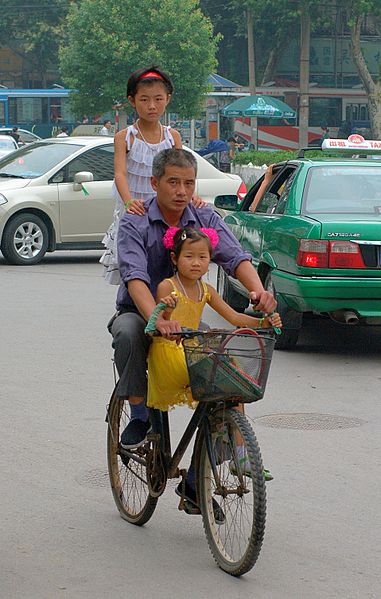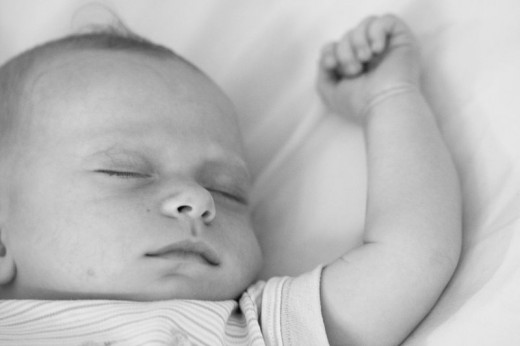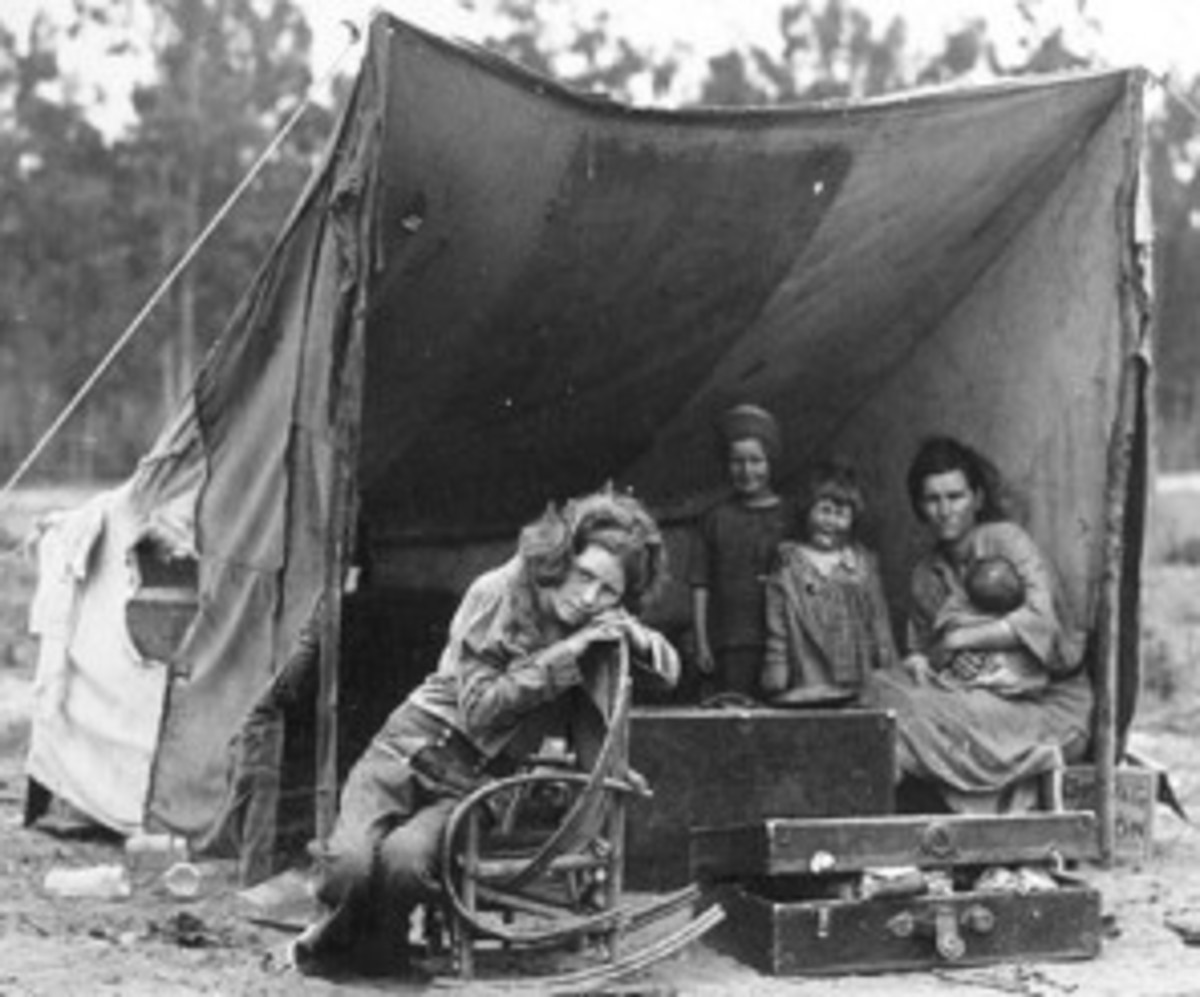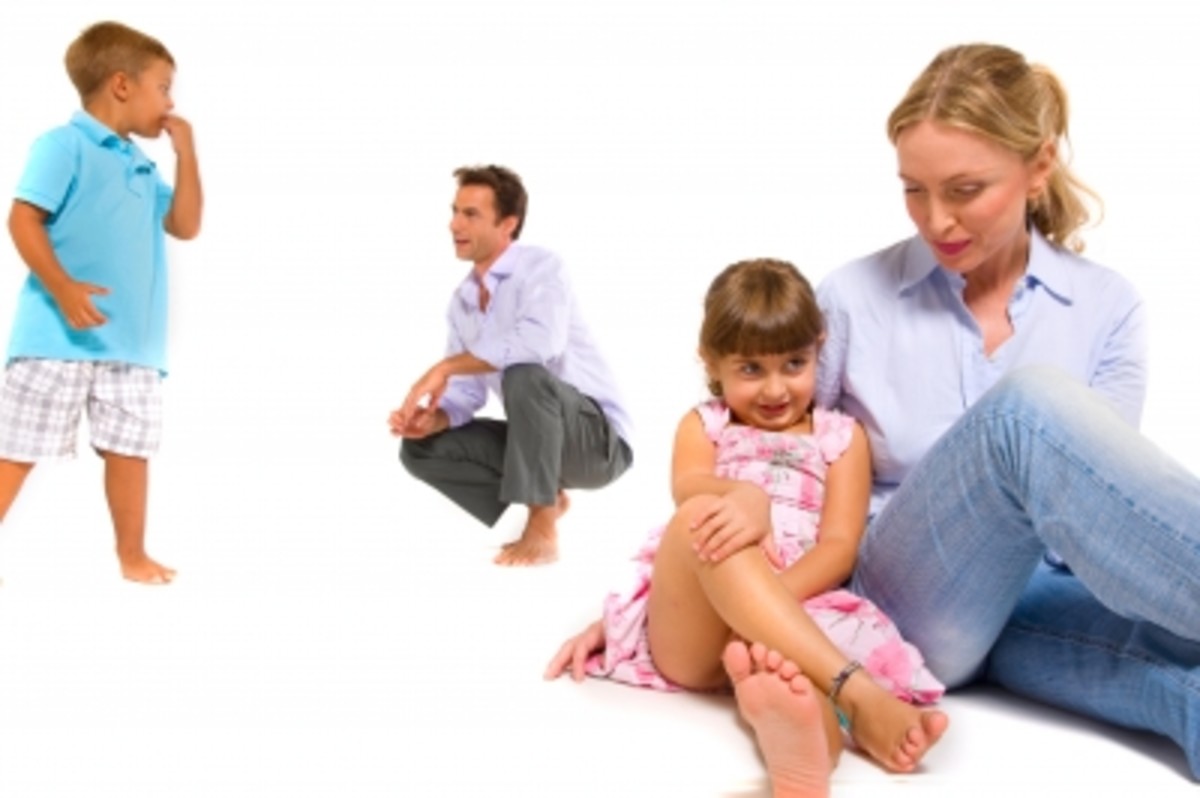Free Range Kids- A New Trend in Slow Parenting
It wasn't that long ago that kids were expected to behave like small adults. Psychologists and sociologists started to realize the problems with this theory, and American culture migrated to a more child-centered view. The phrase, "Children should be seen and not heard" was replaced with "Children are the center of the universe."
What started out as a good cause, fell victim to the typical problem of the pendulum swing. Now our society is so hyper-focused on children, many kids these days do not have any idea how to live in the world without their hovering parent a few feet away.
The free range kids movement was born in an effort to bring parenting back to the radical middle.

Defining the 'Free Range Kids' movement
This parenting style believes in fostering independence and self-reliance. Sometimes called "slow parenting," kids are given freedoms and responsibilities according to their age and level of maturity, and are encouraged to explore the world without fear that the "worst case scenario" will happen. Parents are slow to intervene or prevent learning through failure and mistakes.
Here are some typical activities that free range kids are allowed to do at an earlier age than many others:
- Walking or biking to school or in town
- Talking to strangers
- Taking a bus or subway alone
- Cooking a meal using the stove
- Stay home alone for brief periods of time
- Go to the nearby park and play with friends
While most parents would agree that a 16 year old is capable of these activities, free range parents let their 8 and 9 year olds do these things too. Free range parents believe in calculating risk without the infusion of fear.
The woman who started it all....
- FreeRangeKids
Give Our Kids the Freedom We Had - Are Modern Kids Coddled? - Newsweek and The Daily Beast
A New York columnist lets her grade-schooler ride the subway alone, provoking a wave of criticism. But do kids really need more supervision than in generations past?
Rebelling against a fear-based society
Many well meaning parents do not realize how much fear of the "worst case scenario" dictates their actions. When fear becomes the emotion used to assess risk, invariably the parent will choose the "safe" option. The truth is that while the above activities might seem risky, it is actually more likely that a child might be killed in a car accident than an abduction.
Free range parents look at the statistics. Of course, riding a bike means wearing a bike helmet. Kids are taught how to be safe, but they are not denied the experience simply because of a rare possibility that something terrible might happen. If people made all their decisions this way, no one would ever leave the house, get in a car, hike a mountain, or do any activity with a risk.
"But the world isn't the same as it was 50 years ago!"
This is the most common argument against free range kids. The world is getting scarier, darker, and more dangerous by the second. When someone says that, usually it is not because they have done research, but because society is inundated with melo-dramatic media that like to show the worst.
50 years ago, the world was not as plugged in as it is today. Have the statistics really changed all that much?
Other parents don't bother to examine their long held beliefs about children and safety. "Stranger danger" is a perfect example of this. In a country of more than 300 million people, The US Department of Justice reported 115 children missing from a "stereotypical" kidnapping. All the others are from family members, friends, or the cause of runaways. The truth is that children that know how to talk to strangers are in a better position to get help if someone creepy does come along!
The benefits of free range parenting
Children who are given the chance to fail learn more quickly than those who are coddled.
Let's take a look at the child who is allowed to cook dinner, versus the child who is not.
Perhaps the child cooking will burn the food, burn his or her finger, or misjudge ingredient amounts in the pie they are making. What do these failures teach?
- The child learns that using a potholder with a good grip is necessary.
- Cleaning an oven is no fun. Use a cookie sheet under the pie to prevent your baking mishap from going everywhere.
- It is better to turn the stove on low and build heat, than risk burning your hard work.
When a child is given the chance to fail, the learning is permanent. It is more likely they will remember these lessons when they experience the consequences, rather than simply being told. Of course, it is a parent's job to help set up the child to succeed, but helicopter parents are terrified of failure. Unfortunately, failure is one of the best teachers around.
Children are better equipped for the real world.
When a child is taught how to ride the bus, talk to strangers, read a map, or find their way home, they are learning critical life skills that will help them should they get into a difficult situation.
Children are taught to evaluate risk without infusing fear.
"More is caught than taught." A child who grows up with a fearful parent will view the world as more dangerous than it actually is. Modeling confidence and critical thinking skills is far more effective than modeling the idea that danger lurks around every corner.
Children are more confident and independent.
When parents "believe" in their child's ability to learn, there is a much higher likelihood that the child will grow up with confidence in their own abilities. Helicopter parents send a message to their children that, Without Mom and Dad, you might get snatched or hurt. How does a child deal with life in the event that a parent dies? It is more likely that a parent might die than your child getting abducted.

Personal experience with the controversial free range parenting philosophy
*Though this scenario below isn't a traditional free range parenting example (like allowing a child to walk to school or babysit siblings), my personal experience here is simply meant to examine the importance of evaluating how fear plays a role in one's ability to think critically.
I was a busy mom of three. My oldest son Evan was four years old and in preschool, my daughter was two, and my youngest was 8 months. Life was hectic and busy.
One morning, my daughter Eden took an unusually early nap. She'd been up a lot the night before because of teething, and so I put her down about 15 minutes before it was time to take Evan to school. Eden's napping was regular, and I knew she would sleep for a solid hour to hour and a half.
I briefly contemplated keeping Evan home from preschool because I did not want to wake her up after 15 minutes, but then I started to think critically about my situation.
- Eden was in her crib just beginning her nap.
- Evan's school was approximately 1/4 of a mile down the street. To drop him off and come home would take 5 minutes by car.
- Waking her up to take her to school would be more detrimental to her health than letting her sleep.
- There would be a higher likelihood that she could die in a car crash than if I left her to sleep while I ran to the school.
I chose to leave her at home that day. I locked the house, made sure there was nothing running (like the dryer), called Andrew and told him my plan, and dropped Evan off. I was back in 5 minutes. When I recounted the story to the Moms at my playgroup, I was attacked viciously for my decision!
"What if your house burned down?"
"What if she was kidnapped?"
"What if she woke up crying?"
"What if her blanket choked her?"
"What if you got in a car accident and she was left home for the whole day?"
I had a solution to every argument.
"What if your house burned down?" The chances of this happening are very very small. What about if I was outside walking to the mailbox for ten minutes, taking a nap, or a shower? The risk of the house burning down in five minutes is far smaller than walking her down the sidewalk or putting her in a vehicle or feeding her some new food in her highchair. Should I avoid all those activities too?
"What if she was kidnapped?" First of all, no one except Andrew knew she was there?! And in the event that some stalker was intent on taking my baby, chances are they would do it at night when we all were sleeping, not at 8:30am in the morning.
"What if she woke up crying?" Then she would cry for five minutes. I can guarantee you she would cry for the entire car ride there and back had I woken her up!
"What if her blanket choked her?" She had no blanket.
"What if you got in a car accident and she was left home for the whole day?" This is why I told Andrew. In the unlikely event that I was in a car accident, the police would notify Andrew and he would know that she was safely in her crib at home UNHARMED.
Do you see how fear causes people to not think rationally?
What do you think of free range kids?
Evaluate your parenting
Perhaps the idea of free range parenting seems reckless and scary to you. You do not have to become the poster child for the free range parent. However, it is important to look critically at your decision making process to see if you are allowing fear to drive your decisions.
We all want to protect our children from danger. No one expects a parent to recklessly endanger their child. However, in an effort to protect kids from the tiny risks, we inevitably take a bigger risk: Not allowing our children to learn crucial life skills that will help them to be safe and independent in the future.

About the author
Julie DeNeen is a freelance writer and mom of three. She is a self-proclaimed free range parent, having evaluated that psychologically, it is far better to give her children the chance to fail, than to keep them sheltered from harm.
Are you interested in Hubpages? Sign up and you can publish your first article today!




